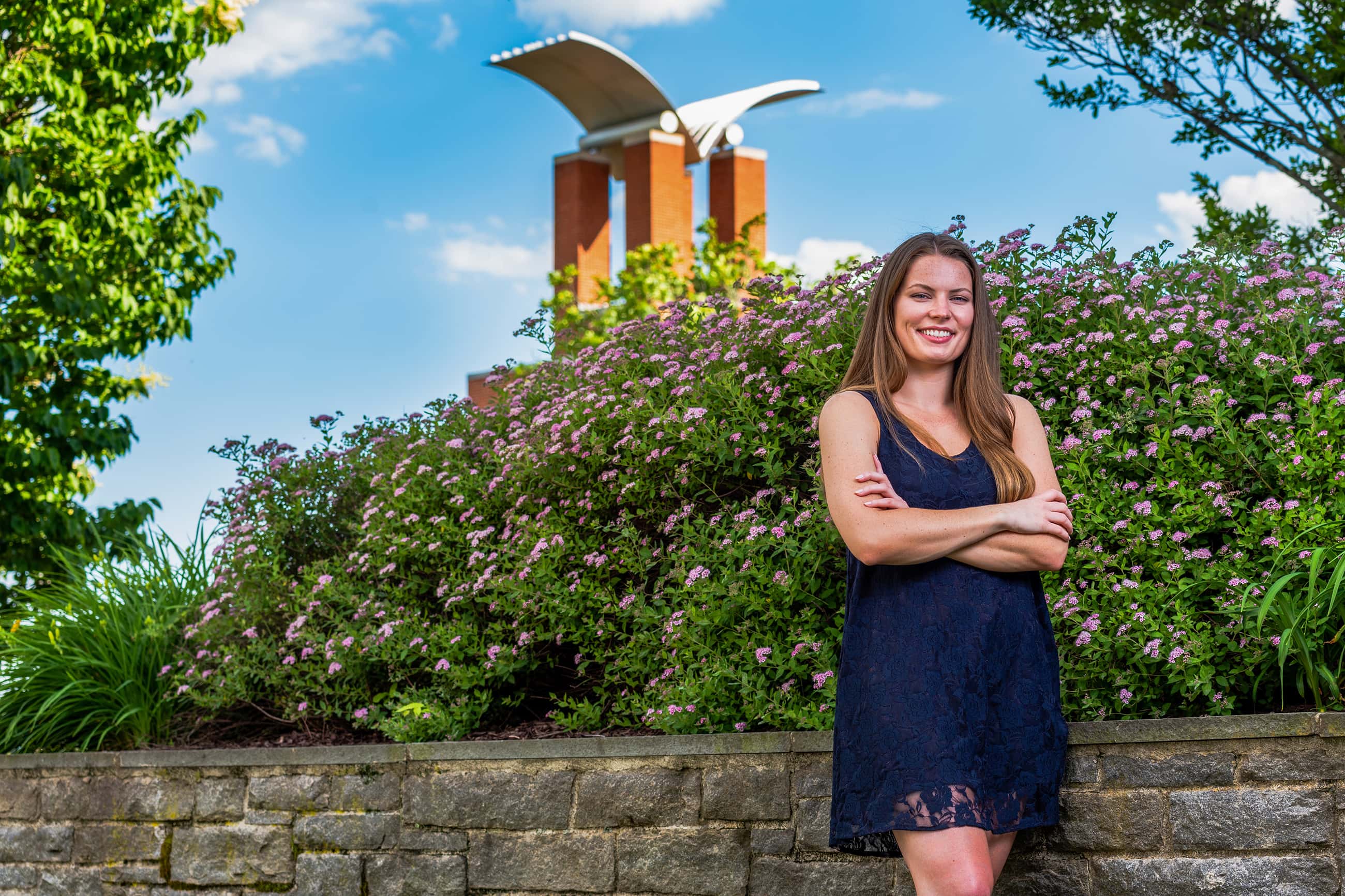Before her junior year in high school, Sarah Hammond, M.S. ‘20, had never heard of a speech-language pathologist (SLP), nor did she envision herself becoming one. But two things happened that changed her mind.
“My mom mentioned the idea of being a speech pathologist because I enjoyed my Spanish classes and really enjoyed language,” Hammond said. “She also said that since I always liked working with kids, this would just be a more specific way of teaching them.”
Then, Hammond’s high school teacher encouraged students to explore health professions-themed career options for a special project.
“I remember reading the description of what an SLP does and deciding that I was interested,” Hammond said.
Alongside her passion for working with kids, Hammond found that as an SLP — professionals who work to prevent, assess, diagnose, and treat speech, language, social communication, and cognitive-communication disorders — she would have the chance to help others in a profound way.
“I think communication is a basic human right, and I wanted to help those with communication disorders to get their messages across effectively,” she said.
Hammond enrolled in Southern’s Master of Science in Communication Disorders degree program with a major in speech-language pathology after receiving a B.S. in communication disorders and a B.A. in linguistics with a minor in psychology at the University of Massachusetts, Amherst. During her first year at Southern, she was a member of SCSU’s grad chapter of the National Student Speech Language Hearing Association (NSSLHA).
She served as the President of the Graduate Student Affairs Committee, a role in which Rosalyn Amenta, Assistant to the Dean of Student Affairs and member of the women’s and gender studies faculty, said Hammond really shone.
“Sarah quickly demonstrated her outstanding leadership style,” Amenta said. “She led with grace and intelligence and was always committed to new initiatives, inclusion, team-building, and operating by consensus. As the faculty advisor to GSAC, I am grateful for the professionalism that she brought to the role.”
Hammond also participated in an advanced clinical placement, interning part-time at Lawrence and Memorial Hospital in New London in an outpatient rehab setting, in addition to the inpatient acute setting. Her internship took place January through March 2020, just as cases of COVID-19 were surfacing.
“The placement was incredibly rewarding, as I got to treat both kids and adults in all nine different domains of this field,” she said. “But COVID-19 really had an impact. I started to notice lots of restrictions being placed,” including the protocols for cleaning and disinfecting.
In the interest of safety, Lawrence and Memorial made the decision to have students in positions similar to Hammond’s leave internships in order to conserve personal protective equipment. She will complete her second school-based practicum June 22, which she has been conducting from her home on Zoom.
Despite the interruption in hands-on experience, Hammond said that experiencing COVID’s effect on the educational system put her at an advantage.
“I am learning how teletherapy (online speech therapy) works,” she said. “I will have this skill set of giving services online forever after this, which is incredibly helpful when applying for jobs, especially considering how COVID-19 has impacted work life. There are many conversations about how the future of education will look while following social distancing rules.”
Looking back on her educational experience, Hammond said her decision to pursue SLP — which was influenced by her mother and that fateful high school assignment — is confirmed every time someone is able to communicate what they want to because of speech therapy, especially now, during the protests inspired by George Floyd’s death.
“I’ve had multiple conversations with other SLPs about how we can continue to amplify the voices of those that have been silenced for years, both in our field and in our own personal lives,” Hammond said. “I think the opportunity to help someone express their thoughts in a way that they never had before is the greatest privilege.”
After graduation, Hammond plans to work in a school as a school-based SLP for her clinical fellowship year in order to get her SLP license. Eventually she would like to come back to Southern for her Ph.D. in communication disorders.
“I had many clinical instructors [at Southern] that helped me to understand both the clinical and professional aspects of this field,” she said. “All of the professors in the Communication Disorders Department are incredibly intelligent and have tons of clinical experience to share. I believe I will be a better SLP because of SCSU’s program and professors.”


